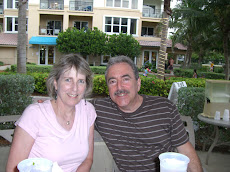
Scientific American is providing an interesting read this week with an interview with Daniel Tammet, a person SA says is an autistic savant. He talks some about creativity so I was interested in his take. The whole area of savantism is facinating so I have provided some links below.
One interesting statement Tammet makes that I can relate to since I have a fairly good visual recall of places I have been to - enough to drive somewhere in a city I have not been in for 20-30 years.
He says: "Here is another tip from my book. Researchers have found that you are more likely to remember something if the place or situation in which you are trying to recall the information bears some resemblance—color or smell, for example—to where you originally learned it. A greater awareness therefore of the context in which we acquire a particular piece of information can help improve our ability to remember it later on."
Good quote: "My brain has
developed a little differently from most other people’s. Aside from my high-functioning autism, I also suffered from epileptic seizures as a young child. In my book, I propose a link between my brain’s functioning and my creative abilities based on the property of ‘hyper-connectivity’. "
Daniel Tammet is the author of two books, Born on a Blue Day and Embracing the Wide Sky, which comes out this month. He’s also a linguist and holds the European record for reciting the first 22,514 decimal points of the mathematical constant Pi. Mind Matters editor Jonah Lehrer chats with Tammet about how his memory works, why the IQ test is overrated, and a possible explanation for extraordinary feats of creativity.
LEHRER: Your recent memoir,
Born on a Blue Day, documented your life as an autistic
savant. You describe, for example, how you are able to quickly learn new languages, and remember scenes from years earlier in cinematic detail. Are you ever surprised by your own abilities?
TAMMET: I have always thought of abstract information—numbers for example—in visual, dynamic form. Numbers assume complex, multi-dimensional shapes in my head that I manipulate to form the solution to sums, or compare when determining whether they are prime or not. For languages, I do something similar in terms of thinking of words as belonging to clusters of meaning so that each piece of vocabulary makes sense according to its place in my mental architecture for that language. In this way I can easily discern relationships between words, which helps me to remember them. In my mind, numbers and words are far more than squiggles of ink on a page. They have form, color, texture and so on. They come alive to me, which is why as a young child I thought of them as my “friends.” I think this is why my memory is very deep, because the information is not static. I say in my book that I do not crunch numbers (like a computer). Rather, I dance with them. None of this is particularly surprising for me. I have always thought in this way so it seems entirely natural. What I do find surprising is that other people do not think in the same way. I find it hard to imagine a world where numbers and words are not how I experience them!
 Sometimes I cover innovation on this blog, and usually more from a creativity side of things. Today I am sharing this business story because it is really a wake-up call for how complicated the legal side of innovation is becoming.
Sometimes I cover innovation on this blog, and usually more from a creativity side of things. Today I am sharing this business story because it is really a wake-up call for how complicated the legal side of innovation is becoming.





